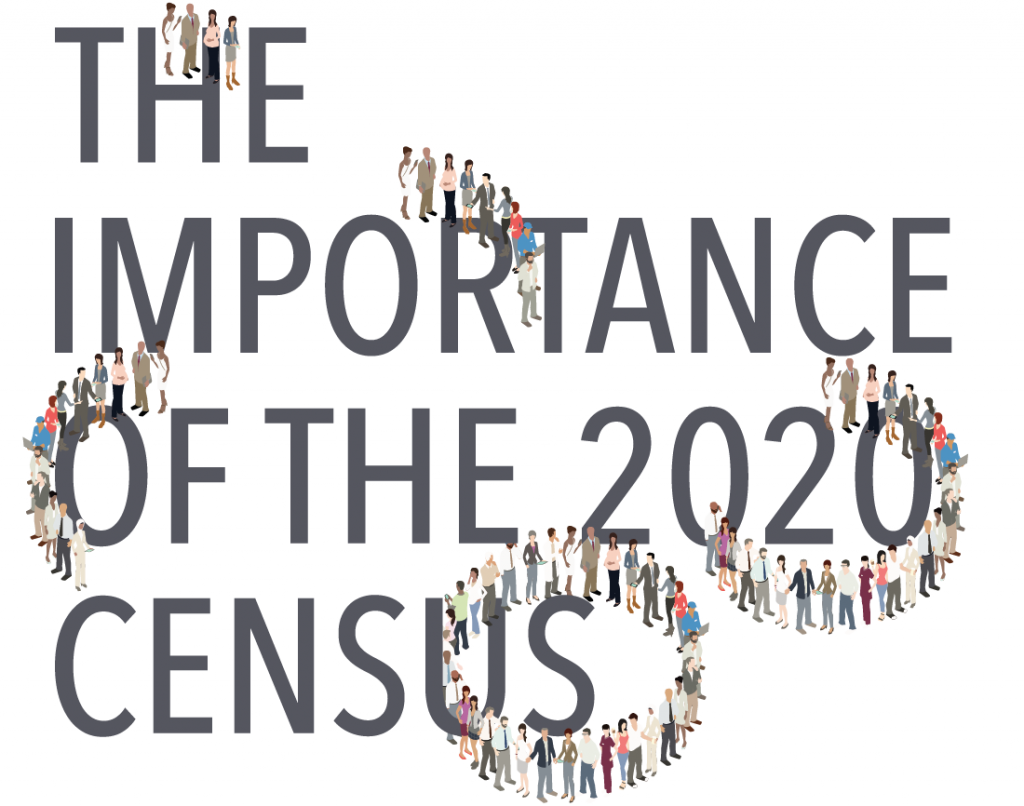The Importance of the 2020 Census
By Rooney Virgin
OSSBA Staff Attorney & Director of Government Affairs
 The United States Census is a decennial census mandated by Article 1, Section 2 of the U.S, Constitution, which states: “Representatives and direct taxes shall be apportioned among the several states which may be included within this Union, according to their respective numbers […].”
The United States Census is a decennial census mandated by Article 1, Section 2 of the U.S, Constitution, which states: “Representatives and direct taxes shall be apportioned among the several states which may be included within this Union, according to their respective numbers […].”
The 2020 census will be the 23rd census since it began in 1790. Congress has delegated its authority over the census to the Department of Commerce.
How does the census work? First, every living person in the U.S. and its territories are counted, one time and in one place, typically where the individual sleeps most nights. 2020 will be the first year in which the census is available online, which aims at reaching more people and saving money. A census is mailed to a household, and if not returned, a second mailing is sent. If the second isn’t returned, a census worker will visit the household in order to obtain the data. The collected information is kept completely confidential by the Census Bureau and can’t be disclosed for 72 years. This policy helps ensure the accuracy of the data, as some people may be hesitant to disclose the information if they believe other government agencies could access the personal data.
There are myriad of applications for U.S. Census data. The four main functions of the data that impact public policy and all of us are:
- Reapportionment of U.S. House of Representative Seats: The number of congressional districts in a state may shift based on increases or decreases in population over the previous decade, which impacts congressional representation and state electoral votes. This reapportionment of seats in the House of Representatives and resulting change in electoral votes can shift political power in the U.S.
- Redistricting State Congressional Districts: State by state, congressional and state legislative districts are drawn based on census data. When the population shifts within a state, the district boundaries must change every 10 years to ensure each district has as close to the same population as other districts.
- Demographic Data: The census provides a snapshot of country, state and local demographics. This data helps the government and other entities decide where to focus their attention and resources.
- Government Funding: Over $400 billion per year is allocated through the nation with help from census data, including for education. State and local funds are often distributed based on population.
In addition, census data can affect the boundaries of school board seats for school districts that have members selected by a ward or district.
All federal funds are allocated from the U.S. Department of Education to the states based on their census count or the number of children living in the district. The two biggest allocations are Title I aid for disadvantaged students, which received $15.8 billion in fiscal year 2018, and special education grants to states, which received $12.3 billion in fiscal year 2018. Both are based upon poverty levels. An inaccurate count could mean lower federal funds for Oklahoma and for your school district.
People are sometimes skeptical of answering the census because of their immigration status, criminal history or concerns over a loved one’s history. It is also very difficult to obtain data for migrant populations like the homeless and immigrants. Those fearful of repercussions, even though their collected data cannot be released for 72 years or be used as a punitive measure, will avoid answering the census. This has huge ramifications in terms of federal funding allocations to states and schools. If not all people are counted, then there will be less funding than is needed allocated to the states, and in turn, schools. Many states engage in multi–million–dollar campaigns advertising the census and trying to assuage any fears people may have in answering the census. In order to get an accurate count, it is important that everyone answers the census. I would encourage your school to send out information to patrons and stakeholders about the importance of completing the census.
There is one twist in the 2020 U.S. Census. The Trump administration decided to add a question to the census, called the “citizenship question,” asking if the person is a U.S. citizen. This question caused an uproar and litigation. New York State, along with several other states and entities, filed an injunction in federal court seeking to bar the question from the 2020 Census. The federal court judge ruled in favor of New York. The Department of Commerce filed an appeal to the U.S. Supreme Court. The High Court ruled in favor of New York on June 27th in a 5-4 decision. The Court opined that the explanation for adding the citizenship question to the census was insufficient. It remains unclear whether the Trump Administration can and has time to provide a better explanation before the Census goes to print next week. If the citizenship question were allowed on the 2020 Census, we think it’s safe to say it’ll deter many people from answering the census, which will have major repercussion for federal education funding.
OSSBA intern and Oklahoma City University law student Austin Browning contributed to this article.
Sources:
http://www.yourvoteyourvoicemn.org/
United States Department of Commerce, et al. v. New York, et al. Docket No. 18-966
New York v. Dept. of Commerce, No. 1:18-cv-02921, 2019 WL 190285 (S.D.N.Y. Jan. 15, 2019)
Editor’s Note: On July 2, the Trump administration indicated it wouldn’t pursue efforts to add a citizenship question to the 2020 Census.